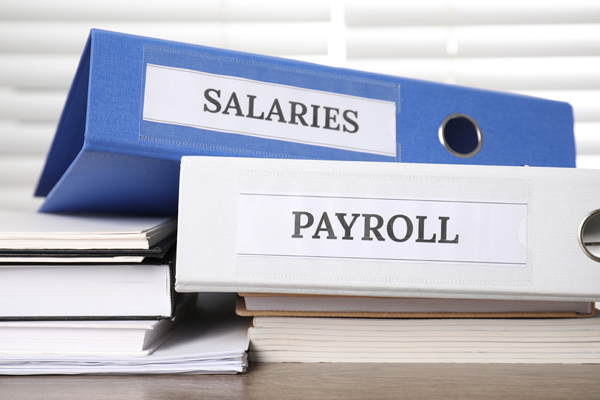As businesses grow, so do their people-related responsibilities. Payroll, benefits, compliance, hiring, and risk management start to take up more and more time. For lean teams and scaling companies, managing these tasks in-house can slow momentum and drain valuable resources. That’s where outsourcing comes in.
Two popular models dominate this space: the Professional Employer Organization (PEO) and the Human Resources Outsourcing (HRO) provider. Both are designed to help businesses offload HR functions, but they differ in structure, services, and scope.
If you’re wondering which model aligns with your company’s growth stage, budget, and long-term vision, this guide is for you. We’ll break down how PEO vs. HRO works, what they offer, and what type of business they best serve.
What Is a PEO?
A PEO acts as a co-employer, taking on many of the responsibilities typically handled by an internal HR department. In a co-employment relationship, your business continues to manage daily operations while the PEO becomes the official employer of record for tax and benefits purposes.
This means the PEO handles payroll, tax filings, benefits administration, workers’ compensation coverage, onboarding, and compliance. Employees technically appear on the PEO’s books, though all management decisions remain in your hands.
PEOs for small to midsize businesses offer the stability and support of a fully developed HR infrastructure without hiring a large internal team.
What Is an HRO?
An HRO provider is an external partner that manages selected HR functions on your behalf. These may include recruiting, onboarding, training, benefits enrollment, or even payroll processing. Unlike a PEO, there is no co-employment arrangement. You remain the sole legal employer, and the HRO serves as a support vendor.
With HROs, you choose which tasks to outsource and which to keep in-house. This model offers a high degree of customization, making it ideal for larger organizations with complex or specialized HR needs.
HROs can act as consultants or as operational partners, depending on the level of involvement you need.
Payroll and Tax Management
With a PEO, payroll is not just a service; it is fully integrated. Payments go out on time, taxes are calculated and filed correctly, and all deductions are tracked. Because of the co-employment model, the PEO assumes responsibility for these filings, reducing the risk of late penalties or costly audits.
An HRO can also manage payroll, but it acts more as a facilitator. You remain responsible for tax filing and compliance unless otherwise contracted. While this offers more control, it also requires closer oversight from your internal team.
If your company prefers to set it and forget it, the PEO model tends to offer more turnkey solutions in the payroll department.
Benefits Administration
Access to affordable employee benefits is one of the strongest arguments in favor of PEOs. Because a PEO pools multiple clients under its umbrella, it can negotiate better rates for health insurance, retirement plans, and other perks. Small businesses can access big-company benefits at more manageable costs.
HROs, on the other hand, typically manage plans that your business already has in place. They can help employees navigate options, assist with enrollment, and answer questions, but they do not offer group-level pricing advantages. If you already work with a broker or carrier, an HRO may be able to plug into that framework with ease.
Compliance and Risk Management
Employment laws change often, and one misstep can lead to fines, lawsuits, or worse. PEOs offer built-in compliance support. Because they serve as co-employers, they stay current with federal, state, and local labor laws and automatically update systems and processes to match.
This includes everything from minimum wage adjustments to new sick leave mandates. PEOs also manage workers’ compensation claims and support safety training programs, particularly in high-risk industries like construction, manufacturing, and logistics.
HROs can offer compliance support as well, but it is usually more reactive and depends on the scope of your agreement. Some HROs act as consultants and guide your team through changes, while others take a more hands-off approach.
Workers' Compensation Support
Many PEOs offer workers’ compensation coverage as part of their service package. This means fewer steps to secure coverage and fewer administrative tasks to juggle. Claims are processed quickly, and safety programs are often part of the deal.
This is a major advantage of PEO for startups or high-risk companies that struggle to qualify for affordable coverage.
HROs do not typically provide workers’ comp coverage directly. They may manage claims or coordinate with your insurer, but the policy remains separate. If workers’ compensation is a top concern, the simplicity of a PEO model may offer a smoother experience.
Ongoing Updates and Compliance
Hiring is only the beginning. Onboarding plays a key role in how long employees stay, how productive they become, and how confident they feel in your company. PEOs offer tech-forward onboarding platforms that let new hires submit documents, enroll in benefits, and review handbooks digitally. Some providers also offer text message employee onboarding.
This reduces friction and gives your business a polished, professional feel even in the early stages.
HROs also support onboarding, but the tools vary by provider. Some offer digital platforms, others rely on manual processes or integrate with your existing systems. If you already use an HRIS or ATS, an HRO might be easier to plug in.
Scalability
Startups and small businesses tend to experience rapid, unpredictable growth. One month you are a team of five, the next you are opening new locations in three states. A PEO scales with you, adjusting benefits, payroll, and compliance support as your team expands.
HROs offer scalability too, but they work best in companies with some internal HR infrastructure already in place. Their flexibility allows for custom setups, but that also means more input is required from your team to make changes or add services.
If you are looking for something hands-off and ready to grow with you, a PEO may be the better fit.
Customization and Control
HROs let you cherry-pick the services you need. Want help with recruiting but not payroll? Done. Need training materials but want to keep your own benefits broker? No problem.
This à la carte approach appeals to larger companies or those with established HR teams. It also suits businesses in niche sectors that need highly specific support.
PEOs are more structured. You typically receive a full package of services, which simplifies management but offers less room to personalize. The trade-off comes down to control versus convenience.
Industry Fit
PEOs are a great match for high-risk industries that need strong workers’ comp support and safety programs. They are also ideal for companies with no HR department and no time to build one. Industries like construction, staffing, hospitality, and transportation often rely on PEOs for that reason.
HROs, by contrast, tend to serve mid-sized to large companies that want to outsource parts of HR but retain strategic control. They work with corporate offices, tech companies, law firms, and businesses with established policies and internal protocols.
Cost Considerations
PEOs usually charge a percentage of your total payroll or a flat fee per employee. This cost covers payroll processing, benefits administration, HR services and solutions, compliance, and workers’ comp. While this pricing model is predictable, it is all-inclusive, even if you don’t use every service.
HROs tend to offer more variable pricing based on the services you select. If you only need a few functions outsourced, this model can be more budget-friendly. However, costs can add up quickly as you add more services.
Startups often prefer the predictability of a PEO, while larger companies may benefit from the flexibility of HRO pricing.
Which One Is Right for You?
Ask yourself the following:
- Do you have an internal HR team, or are you building from scratch?
- Are you growing quickly or expanding to new locations?
- Do you need affordable access to benefits and workers’ comp?
- How much control do you want over each HR function?
- What kind of support will help you grow with confidence?
If you are a startup or small business without in-house HR, a PEO offers simplicity, speed, and peace of mind. If you are a larger organization looking to supplement your current team with outside expertise, an HRO might be the more strategic choice.
Ready to Simplify HR and Payroll? Let COMPEO Take the Lead
At COMPEO, we help small businesses streamline operations with an all-in-one solution for payroll, HR, and workers’ compensation. From automated payroll processing and mobile-friendly onboarding to tailored workers’ comp programs, our services are built for efficiency and speed.
Perfect for high-risk industries and growing startups, COMPEO gives you flexibility without long-term contracts or hidden fees. You pay only for what you use, nothing more.
Thousands of companies across the U.S. already trust us to reduce risk, save time, and help them grow with confidence. Now it’s your turn.
Call 855-271-2664 to speak with our team, or visit our website to get you


